SIS Welcomes New Faculty
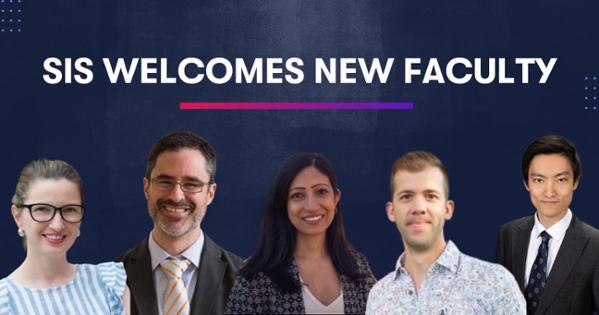
AU’s School of International Service is honored to welcome five new full-time faculty members for academic year 2024–25. Each faculty member is an expert in their field and brings extensive research and practical experience to the classroom.
Among the new faculty, current members of the SIS community will recognize a couple of familiar faces. Two SIS faculty, Scott Freeman and Simon Nicholson, will move into different roles, and we welcome the new contributions they will each bring. Meet these new faculty members below and learn more about their interests and recent research.
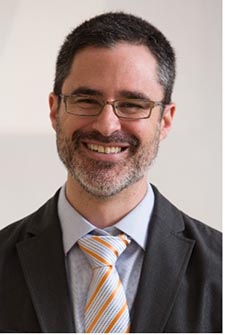 Simon Nicholson is a faculty member in the SIS Department of Environment, Development & Health who will move into two new roles this year: Associate Professor and SIS Associate Dean of Research. Simon serves as co-director of SIS’s Institute for Responsible Carbon Removal and was the founding director of American University’s campus-wide Center for Environment, Community, and Equity. His work and policy engagement focus on global environmental governance and the environmental implications of emerging technologies, including solar geoengineering and carbon removal approaches to climate response. He co-edits the One Planet book series for MIT Press and serves as principal investigator on a variety of grant-funded projects related to the development of responsible pathways for carbon removal research and deployment. Simon also is a proud graduate of SIS’s PhD program.
Simon Nicholson is a faculty member in the SIS Department of Environment, Development & Health who will move into two new roles this year: Associate Professor and SIS Associate Dean of Research. Simon serves as co-director of SIS’s Institute for Responsible Carbon Removal and was the founding director of American University’s campus-wide Center for Environment, Community, and Equity. His work and policy engagement focus on global environmental governance and the environmental implications of emerging technologies, including solar geoengineering and carbon removal approaches to climate response. He co-edits the One Planet book series for MIT Press and serves as principal investigator on a variety of grant-funded projects related to the development of responsible pathways for carbon removal research and deployment. Simon also is a proud graduate of SIS’s PhD program.
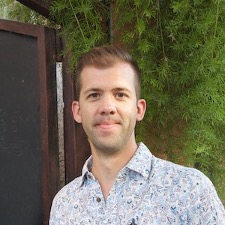 Scott Freeman, who now becomes an Assistant Professor in SIS’s Department of Environment, Development & Health, is an anthropologist whose work is at the intersection of the anthropology of the environment, critical development studies, and labor in Haiti and the Dominican Republic. He has established a line of inquiry around aid projects and the regimes of labor that support aid projects. This research examines the aid industry as a market for projects and theorizes the ways in which recipients of aid contribute valuable and uncompensated labor to the production of successful projects. Through an examination of the historical genealogy of soil conservation interventions and the rise of the aid “project” as an administrative unit, he theorizes the ways in which the failures of aid in Haiti exist alongside the production of successful project reports. More recently, he has been collaborating with grassroots groups seeking remedy for displacement caused by aid projects, and looking at the history of landgrabs and environmental change in northern Haiti.
Scott Freeman, who now becomes an Assistant Professor in SIS’s Department of Environment, Development & Health, is an anthropologist whose work is at the intersection of the anthropology of the environment, critical development studies, and labor in Haiti and the Dominican Republic. He has established a line of inquiry around aid projects and the regimes of labor that support aid projects. This research examines the aid industry as a market for projects and theorizes the ways in which recipients of aid contribute valuable and uncompensated labor to the production of successful projects. Through an examination of the historical genealogy of soil conservation interventions and the rise of the aid “project” as an administrative unit, he theorizes the ways in which the failures of aid in Haiti exist alongside the production of successful project reports. More recently, he has been collaborating with grassroots groups seeking remedy for displacement caused by aid projects, and looking at the history of landgrabs and environmental change in northern Haiti.
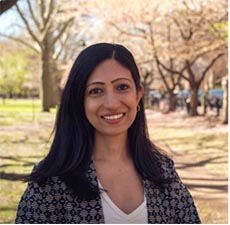 Sarah Khan joins SIS as an Assistant Professor in our Department of Politics, Governance & Economics. Her research focuses on gender and politics in South Asia. In her work, she studies gender gaps in political preferences, patterns of preference expression, and the barriers to women’s political participation and representation. Her work has been published in academic journals such as the American Political Science Review and Journal of Experimental Political Science, as well as media outlets such as Foreign Affairs and the Washington Post. Her research in Pakistan involves collaborating with civil society organizations and government institutions to generate actionable evidence on issues such as women’s electoral and civic participation and responses to gender-based violence. She received her PhD in political science from Columbia University in 2020 and was an Assistant Professor at Yale University from 2020 to 2024. She is a member of the Empirical Research on Gender (EGEN) and Evidence in Governance and Politics (EGAP) research networks and a fellow at the the Institute of Development and Economic Alternatives - Pakistan (IDEAS) and the Mahbub ul Haq Research Center (MHRC).
Sarah Khan joins SIS as an Assistant Professor in our Department of Politics, Governance & Economics. Her research focuses on gender and politics in South Asia. In her work, she studies gender gaps in political preferences, patterns of preference expression, and the barriers to women’s political participation and representation. Her work has been published in academic journals such as the American Political Science Review and Journal of Experimental Political Science, as well as media outlets such as Foreign Affairs and the Washington Post. Her research in Pakistan involves collaborating with civil society organizations and government institutions to generate actionable evidence on issues such as women’s electoral and civic participation and responses to gender-based violence. She received her PhD in political science from Columbia University in 2020 and was an Assistant Professor at Yale University from 2020 to 2024. She is a member of the Empirical Research on Gender (EGEN) and Evidence in Governance and Politics (EGAP) research networks and a fellow at the the Institute of Development and Economic Alternatives - Pakistan (IDEAS) and the Mahbub ul Haq Research Center (MHRC).
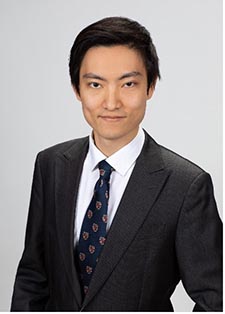 Hansong Li, incoming Assistant Professor in SIS’s Department of Global Inquiry, is a humanist and social scientist who writes on international law and politics, ethics and economics, and philosophical debates over world justice in Western, South Asian, and East Asian literatures. Having lived in Beijing and Paris, he coordinates the Association for Global Political Thought, translates Tangut texts, and reviews operas, musicals, galleries, and books for newspapers in multiple languages. Hansong received his BA from the University of Chicago, a master of philosophy from Cambridge University, a PhD from Harvard University, and has been an international jurist at the Law School of Freie Universität Berlin.
Hansong Li, incoming Assistant Professor in SIS’s Department of Global Inquiry, is a humanist and social scientist who writes on international law and politics, ethics and economics, and philosophical debates over world justice in Western, South Asian, and East Asian literatures. Having lived in Beijing and Paris, he coordinates the Association for Global Political Thought, translates Tangut texts, and reviews operas, musicals, galleries, and books for newspapers in multiple languages. Hansong received his BA from the University of Chicago, a master of philosophy from Cambridge University, a PhD from Harvard University, and has been an international jurist at the Law School of Freie Universität Berlin.
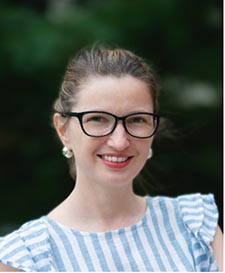 Polina Beliakova will join SIS in academic year 2025-26 as an Assistant Professor in the Department of Foreign Policy & Global Security. She currently is a postdoctoral research fellow at the MIT Security Studies Program, where her work addresses Russian foreign and security policy. Her broader scholarship focuses on civil-military relations and the use of force, with regional expertise in Russia, Ukraine, and Israel. She received her PhD in international relations from the Fletcher School at Tufts University, and held a postdoctoral appointment at Dartmouth College's Dickey Center for International Understanding. Being a native Ukrainian and Russian speaker, she collects data through elite interviews, fieldwork, archival research, and systematic review of local media sources using quantitative and qualitative approaches for data analysis. Her book project, Know Thy Military: How Governmental Policies Weaken Civilian Control, highlights the understudied effects of governmental decisions about the use of force on the erosion of civilian control in the states with historically coup-averse militaries. The empirical chapters build on evidence from Russia, Ukraine, Israel, and the UK. Polina's work has been published by Comparative Political Studies, Texas National Security Review, Perspectives on Terrorism, Foreign Affairs, War on the Rocks, POLITICO, and the Washington Post. Her expertise on the Russian defense sector, Ukraine's security sector governance, and Russia's post-Cold War use of force informed projects by the UK’s Foreign, Commonwealth & Development Office, Transparency International, and the World Peace Foundation, among others.
Polina Beliakova will join SIS in academic year 2025-26 as an Assistant Professor in the Department of Foreign Policy & Global Security. She currently is a postdoctoral research fellow at the MIT Security Studies Program, where her work addresses Russian foreign and security policy. Her broader scholarship focuses on civil-military relations and the use of force, with regional expertise in Russia, Ukraine, and Israel. She received her PhD in international relations from the Fletcher School at Tufts University, and held a postdoctoral appointment at Dartmouth College's Dickey Center for International Understanding. Being a native Ukrainian and Russian speaker, she collects data through elite interviews, fieldwork, archival research, and systematic review of local media sources using quantitative and qualitative approaches for data analysis. Her book project, Know Thy Military: How Governmental Policies Weaken Civilian Control, highlights the understudied effects of governmental decisions about the use of force on the erosion of civilian control in the states with historically coup-averse militaries. The empirical chapters build on evidence from Russia, Ukraine, Israel, and the UK. Polina's work has been published by Comparative Political Studies, Texas National Security Review, Perspectives on Terrorism, Foreign Affairs, War on the Rocks, POLITICO, and the Washington Post. Her expertise on the Russian defense sector, Ukraine's security sector governance, and Russia's post-Cold War use of force informed projects by the UK’s Foreign, Commonwealth & Development Office, Transparency International, and the World Peace Foundation, among others.
